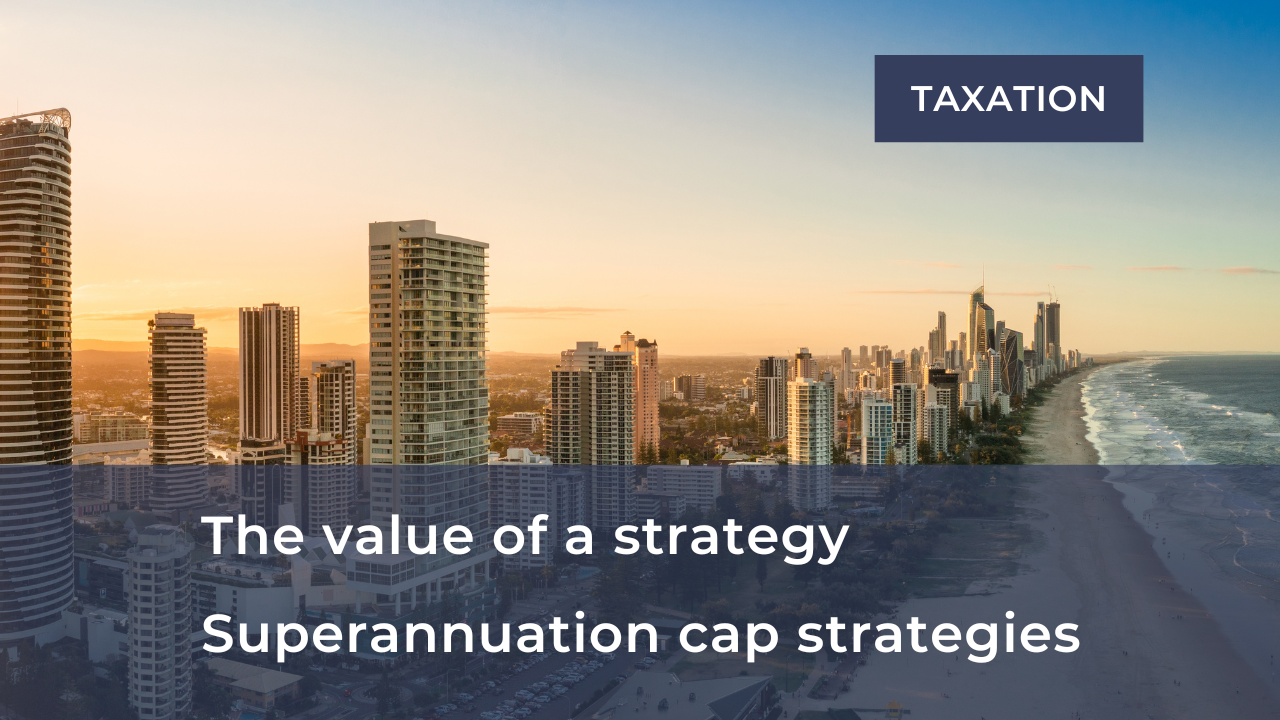Salary sacrifice strategies and concessional caps
A recent court ruling highlights the benefits of revisiting superannuation contribution strategies as the concessional contributions cap is set to increase from 1 July 2024.
A recent case has highlighted that early payment of superannuation leading to excess concessional contributions may not be considered a special circumstance allowing reallocation under s. 291-465(2) ITAA 1997.
The facts of Oldenburger v Commissioner of Taxationshow that the applicant and the employer had a verbal agreement to salary sacrifice into superannuation the difference between the applicable $25,000 concessional contributions cap and the compulsory employer contributions.
The applicant exceeded their concessional contributions cap due to early SG payments by their employer and applied for the Commissioner’s discretion. The request was denied on the grounds that early payment by an employer is not a “special circumstance” for excess contributions.
What constitute “special circumstances”
The term “special circumstances” has been considered on numerous occasions by the courts, with the consistent meaning coming down to the facts of the case and circumstances being out of the ordinary.
The ATO examines the evidence of the contributions made and the extent of control a taxpayer has over the amount and timing of the SG contributions and the payment of excess contributions in the foreseeable future.
Commissioner’s discretion to disregard or reallocate contributions
From the 2013–14 income year, an individual can apply to the Commissioner for a determination to disregard all or part of the individual’s concessional contributions or allocate them to a different financial year under s 291-465.
Any amount disregarded or reallocated by the Commissioner does not affect the taxpayer’s eligibility for a superannuation co-contribution or to claim a deduction in relation to those contributions.
Objection to Commissioner’s determination
A taxpayer who is dissatisfied with the Commissioner’s determination (as noted in the Oldenburger case) may object against the determination or the decision.The period in which an individual may object to this determination is the same as the period in which the individual could object to their income tax assessment on the same ground.
Remedial superannuation guarantee contributions
Employers sometimes make remedial SG contributions for late payments made for their current or former employees. A determination to disregard or reallocate any excess contributions to another financial year can be applied for by using ATO form NAT 71333.
Next steps
Two main takeaways from this case are:
a written salary sacrifice agreement should be executed that sets out the timing of when the contributions must be made during a financial year to ensure all SG contributions remain within the annual concessional contributions cap.
employers should monitor the dates when any compulsory or non-compulsory SG contributions are made during the year and have mechanisms in place that send a notification when the annual concessional/non-concessional caps may be exceeded during a financial year.
Super savings and strategies
Tax deductions for topping up super
You can make up to $27,500 in concessional contributions each year assuming your super balance has not reached its limit. If the contributions made by your employer or under a salary sacrifice agreement have not reached this $27,500 limit, you can make a personal contribution and claim a tax deduction for the contribution. It’s a great way to top up your super and reduce your tax.
For those aged between 67 and 74, you will need to meet the ‘work test’ to contribute personal concessional contributions and claim a deduction - you must have worked at least 40 hours within 30 consecutive days in a financial year before your super fund can accept voluntary contributions from you.
To be able to claim the tax deduction for these contributions, the contribution needs to be with the super fund before 30 June (watch out for processing times). You will also need to lodge a Notice of intent to claim or vary a deduction for personal super contributionswith your super fund before you lodge your tax return to advise them of the amount you intend to claim as a deduction.
Bringing forward unused contribution caps
If your total super balance is below $500,000, and you have not reached your cap in the previous four years, you might be able to carry forward any unused contributions and make a larger tax deductible contribution this year. For example, if your total concessional contributions in the 2021-22 financial year were $10,000, you can ‘carry forward’ the unused $17,500 into this financial year, make a higher personal contribution and take the tax deduction. This is a helpful way to reduce your tax liability particularly if you have made a capital gain.
If you have never used your contribution cap, for example you have recently become a resident or have returned from overseas, you can also bolster your superannuation by contributing the five years’ worth of concessional contributions in one year (assuming you have not reached your balance cap).
Doubling the benefit for SMSFs
For self managed superannuation funds, a quirk in the way concessional contributions are reported means that a concessional contribution can be made in June, but not allocated to the member until 28 days later in July. The practical effect is that a member can make a contribution of up to $55,000 this financial year (2 x the $27,500 cap - assuming you have not used your cap) and take the full tax deduction, but the fund recognises the contribution in two amounts; one amount in June and the second allocated to the member from the SMSF’s reserve in July. This strategy is particularly helpful for the self-employed who need to boost their superannuation and reduce their tax liability in a particular year.
Top up your partner’s super
With a cap on how much you can transfer into a tax-free retirement account, it makes sense to even out how much super each person holds to maximise the tax savings for a couple.
If your spouse’s assessable income is less than $37,000, make a contribution of $3,000 or more on their behalf and you can take a tax offset of up to $540.
Another way of topping up your spouse super is super splitting. If your spouse has not retired and below their preservation age, you can roll over up to 85% of a financial year’s taxed splitable contributions to their account.
Contact us
Please feel free to contact our office if you have any queries in relation to this matter.
BE THE FIRST TO KNOW
Subscribe to receive future reports.
Complete the form below to receive timely and insightful information directly to your inbox.

